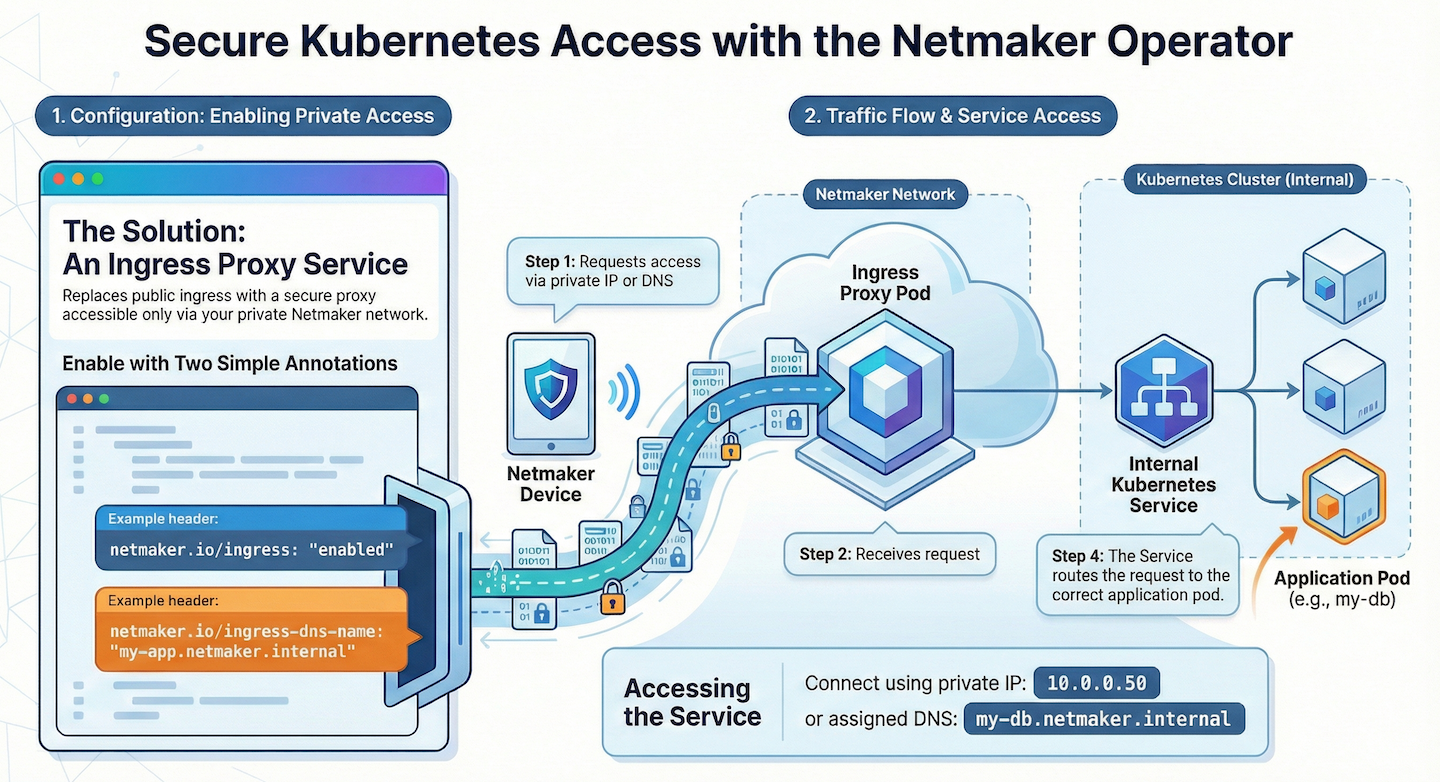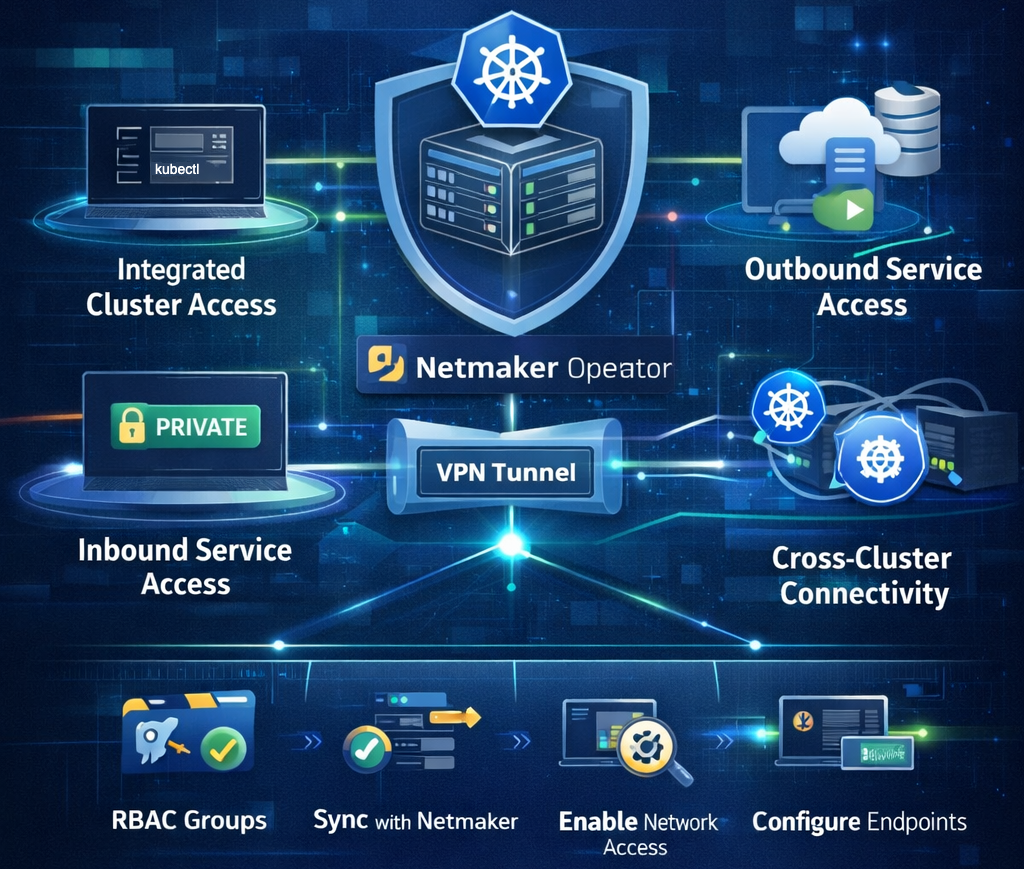The Role of VPNs in Supporting Remote IT Services

IT service providers face the challenge of supporting a geographically dispersed clientele, ensuring continued productivity and security. This complex task requires innovative solutions to bridge physical distances and maintain robust network access.
Here's where Virtual Private Networks (VPNs) become a powerful tool for your remote IT service provider arsenal. By creating secure, encrypted tunnels, VPNs allow your clients' devices to connect to their organization's network as if physically on-site.
This not only empowers you to deliver seamless remote support but also safeguards sensitive data transmission, a critical concern in today's threat landscape.
In this blog post, we'll dig into the critical role VPNs play in supporting remote IT services. We'll explore the specific benefits they offer, showcase real-world use cases, and equip you with key considerations for implementing and managing VPN solutions for your remote clients.
Benefits of VPNs for Remote IT Services
VPNs offer a number of advantages for IT service providers supporting a remote clientele. Here's a closer look at some key technical benefits that enhance security, manageability, and overall efficiency:
Secure Remote Access: Robust Encryption for Data in Transit
VPNs establish secure communication channels between remote client devices and the central organizational network. This is achieved by leveraging robust encryption protocols, such as AES-256, to scramble data in transit.
Essentially, even if intercepted by a malicious actor, your data would appear meaningless without the decryption key, safeguarding sensitive information like:
- Login credentials
- Client and server communications
- Proprietary data transfers
- Remote access to internal applications
Using public Wi-Fi connections or unsecured internet links to access corporate networks can pose significant risks to data security. However, using a Virtual Private Network (VPN) can mitigate these risks by adding an encryption layer that ensures data confidentiality and integrity.
In a way, you can deliver remote support to clients without compromising their security, which allows them to work with confidence.
Centralized Network Management: Streamlined Administration for Remote Resources
VPNs create a virtual extension of the local area network (LAN), enabling you to manage and monitor remote client resources as if you were physically connected. This centralized approach simplifies administration tasks such as:
- Remote desktop access and configuration management
- Patch deployment and vulnerability scanning across all connected devices
- Network access control enforcement and user permission management
- Real-time monitoring of network performance and resource utilization
Centralized visibility like this allows you and your team to proactively identify and address potential issues within the remote client environment, enhancing overall network stability and operational efficiency.
Cost-Effective Solution: Scalable Security Without Infrastructure Investment
Many VPN solutions, including options like Netmaker, offer highly affordable pricing models. This makes them a cost-effective security solution for IT service providers like you, particularly those catering to small and medium-sized businesses (SMBs).
Compared to the complexities and expenses associated with dedicated leased lines or building a complex remote access infrastructure, VPNs provide a secure and scalable alternative.
The subscription-based nature of many VPN services allows you to tailor your spending based on the specific needs of your client base. This flexibility eliminates the need for upfront capital expenditure on hardware or software licenses.
Scalability and Flexibility: Adapting to Dynamic Client Needs
The inherent scalability of VPNs allows IT service providers to seamlessly adapt to the ever-evolving needs of their remote clientele. As client businesses grow and their remote workforce expands, VPN solutions can readily accommodate the addition of new users and devices.
The virtual nature of the network eliminates the limitations of physical infrastructure, allowing for flexible resource allocation and secure access management.
This scalability enables IT service providers to offer their remote support services to businesses of all sizes without experiencing any infrastructure bottlenecks or compatibility issues. Virtual Private Networks (VPNs) provide a future-proof solution that can adapt to the dynamic demands of the remote work landscape.
Common Use Cases for VPNs in Remote IT Services
VPNs extend beyond a simple security tool, transforming into a versatile platform for IT service providers supporting a remote clientele. Here's a breakdown of some key use cases that highlight the technical capabilities of VPNs in various remote IT service scenarios:
Remote Access to Client Sites
VPNs facilitate the creation of secure, encrypted tunnels between the IT service provider's network and the client's on-premises infrastructure. This enables granular network segmentation, granting controlled access to specific resources within the client's network.
Here's a breakdown of the benefits:
- Role-Based Access Control (RBAC): VPNs can be configured to implement RBAC, ensuring that IT service providers only access authorized resources based on their assigned role and permissions.
- Multi-Factor Authentication (MFA): An additional layer of security can be implemented by employing multi-factor authentication (MFA) protocols in conjunction with VPN access.
- Remote Management and Maintenance: With secure VPN access, IT service providers can remotely manage and maintain on-premises resources at client sites.
Remote Support for Distributed Teams
VPNs are instrumental in providing secure remote support for geographically dispersed teams. IT service providers can leverage VPN technology to:
- Remote Desktop Access: Establish secure remote desktop connections to troubleshoot issues on individual devices or access specific applications hosted within the client's network.
- Secure Communication Channels: Facilitate secure and encrypted communication channels for IT support staff collaborating with remote users.
- Enhanced Scalability: The inherent scalability of VPNs allows IT service providers to efficiently support a growing remote workforce within their client base.
Secure Access to Cloud Resources
The increasing adoption of cloud-based solutions necessitates secure access for IT service providers managing client infrastructure. VPNs can be leveraged to create secure tunnels between on-premises networks and cloud environments like:
IT service providers can offer comprehensive support for their clients' hybrid IT environments, which includes both on-premises and cloud-based resources. They can achieve this by granting secure access to cloud-based applications utilized by the client organization, allowing for maintenance, configuration, and user management tasks.
Compliance and Data Protection
Data security and regulatory compliance are paramount concerns for organizations of all sizes. VPNs play a critical role in supporting IT service providers' efforts to meet these requirements by:
- Data Encryption: Data transmitted between the client's network and the IT service provider's infrastructure is encrypted using robust protocols, ensuring data confidentiality and integrity.
- Compliance with Industry Regulations: Many industries have specific data security and privacy regulations, such as HIPAA or GDPR.
- Data Loss Prevention (DLP): Advanced VPN solutions can integrate with DLP tools to further strengthen data protection measures. DLP allows for the identification and prevention of sensitive data leaks that could violate compliance regulations.
Key Considerations for IT Service Providers
Choosing the optimal VPN solution for your remote IT service offerings requires a multifaceted approach. Security and encryption protocols are paramount. Evaluate the available options, ensuring they leverage industry-standard algorithms like AES-256 for data encryption.
Consider features like multi-factor authentication and role-based access control to create a robust security posture and minimize the risk of unauthorized access within client networks.
Beyond security, manageability is key. Explore solutions offering centralized management interfaces, allowing you to effortlessly configure, deploy, and monitor VPN connections for your remote client base. Automated deployment features can further streamline the process, saving you valuable time and resources.
As your client base grows and your remote workforce expands, the scalability of your chosen VPN solution becomes crucial. Look for options that can seamlessly accommodate an increasing number of concurrent connections without compromising performance or stability.
Factor in bandwidth demands to ensure the VPN can handle the data transfer requirements of your clients' remote operations.
Finally, consider the diverse technological landscape of your client environments. The ideal VPN solution should offer broad multi-platform support, ensuring compatibility with a wide range of operating systems and devices your clients use. This flexibility allows you to deliver secure remote support services regardless of your client base's hardware or software configurations.
Conclusion
VPNs have emerged as a cornerstone technology for IT service providers. By leveraging their capabilities, you can empower your clients with secure access to critical resources, regardless of location. However, selecting the right VPN solution is pivotal. Here's where Netmaker shines.
Netmaker offers a modern, secure, and cost-effective approach to remote access. Explore Netmaker's Remote Access Gateway and discover how it can transform your remote IT service offerings.
Enhancing Remote IT Services with Netmaker
Netmaker offers a robust solution for IT service providers looking to enhance the efficiency and security of their remote networks. By leveraging WireGuard®, Netmaker ensures high-speed, secure, and reliable VPN connections, which are essential for supporting a dispersed clientele. Its advanced encryption capabilities protect sensitive data during transmission, allowing IT providers to maintain the confidentiality and integrity of information. Furthermore, Netmaker's ability to automate connection processes and manage multiple VPN networks from a single interface simplifies network administration, enabling seamless remote support and minimizing downtime.
Additionally, Netmaker's centralized network management feature allows IT service providers to monitor and configure networks from a unified platform. This not only streamlines the management of remote resources but also provides real-time insights into network performance and potential security threats. With Netmaker, IT providers can easily scale their operations to accommodate growing client demands without compromising on security or efficiency. To start improving your remote IT services with Netmaker, sign up here.
.svg)








.svg)